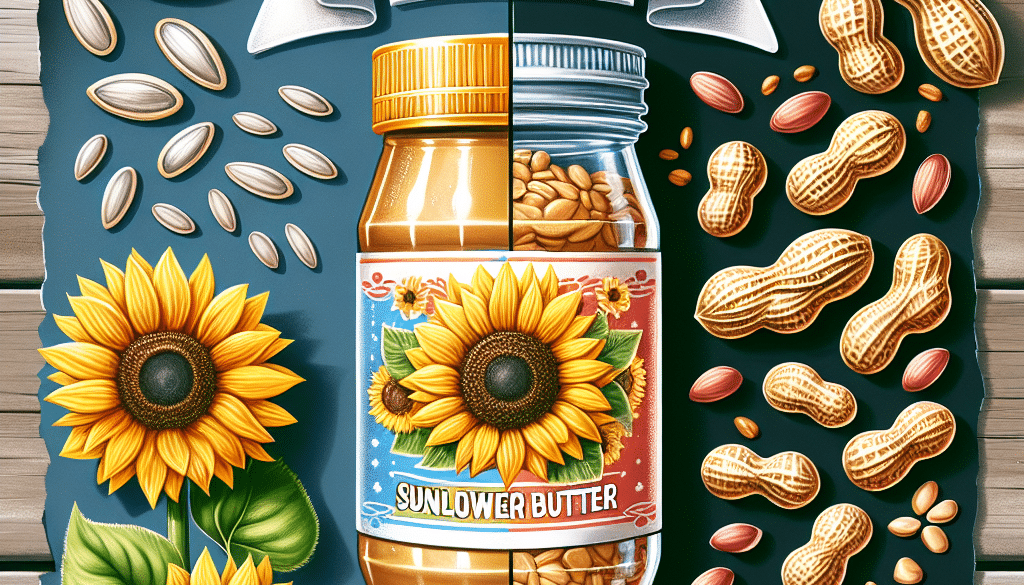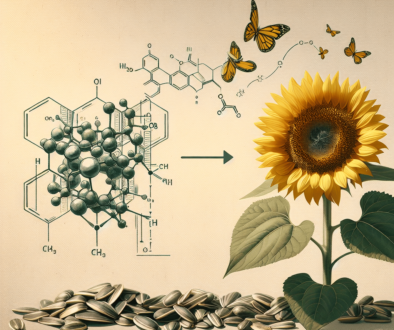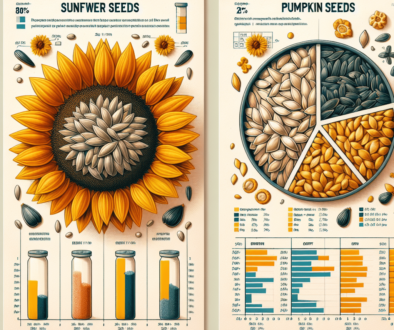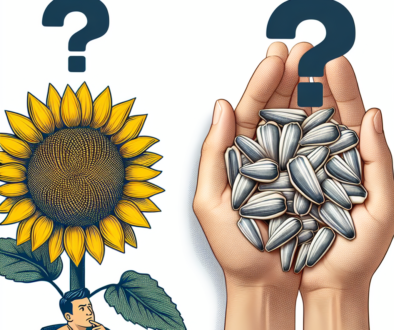Nutrition Face-Off: Sunflower Butter vs Peanut Protein
-
Table of Contents
- Sunflower Butter vs Peanut Protein: A Comprehensive Nutritional Comparison
- Understanding Sunflower Butter
- Nutritional Profile of Sunflower Butter
- Health Benefits of Sunflower Butter
- Potential Drawbacks of Sunflower Butter
- Exploring Peanut Protein
- Nutritional Profile of Peanut Protein
- Health Benefits of Peanut Protein
- Potential Drawbacks of Peanut Protein
- Comparative Analysis: Sunflower Butter vs Peanut Protein
- Protein Content
- Fat Profile
- Allergen Considerations
- Dietary Fiber
- Vitamins and Minerals
- Case Studies and Statistics
- Conclusion: Making the Right Choice for Your Diet
- Discover ETprotein’s High-Quality Protein Products
Sunflower Butter vs Peanut Protein: A Comprehensive Nutritional Comparison

When it comes to choosing the right nutritional spread or protein source, consumers are often faced with a plethora of options. Among these, sunflower butter and peanut protein stand out as popular choices for those seeking healthful alternatives to traditional spreads and protein supplements. This article delves into the nutritional profiles, health benefits, and potential drawbacks of sunflower butter and peanut protein, providing a detailed face-off to help you make an informed decision.
Understanding Sunflower Butter
Sunflower butter, made from the seeds of the sunflower plant, has emerged as a favored spread for individuals with nut allergies or those looking for a different taste profile. It is a creamy, nutrient-dense option that offers a variety of health benefits.
Nutritional Profile of Sunflower Butter
- Rich in Vitamin E, an antioxidant that supports skin health and immune function
- Contains magnesium, which is essential for bone health and energy production
- Provides a good amount of healthy fats, predominantly polyunsaturated and monounsaturated fats
- Includes phytosterols, which may help lower cholesterol levels
- Offers a decent protein content, though not as high as peanut protein
Health Benefits of Sunflower Butter
- May reduce the risk of heart disease due to its healthy fat profile
- Supports skin health through its high Vitamin E content
- Can contribute to a balanced diet for those with nut allergies
- Helps maintain stable blood sugar levels due to its low glycemic index
Potential Drawbacks of Sunflower Butter
- Can be high in calories and fat, which may not be suitable for all diets
- Some brands may add sugar or salt, reducing its nutritional value
Exploring Peanut Protein
Peanut protein is derived from peanuts and is often used in powdered form as a supplement. It is a popular choice among athletes and those looking to increase their protein intake.
Nutritional Profile of Peanut Protein
- High in protein, essential for muscle repair and growth
- Contains healthy fats, with a balance of monounsaturated and polyunsaturated fats
- Rich in B-vitamins, which play a role in energy metabolism
- Provides bioactive compounds like resveratrol, which has antioxidant properties
- Good source of dietary fiber, promoting digestive health
Health Benefits of Peanut Protein
- Supports muscle building and repair, making it ideal for post-workout recovery
- May aid in weight management due to its satiating effect
- Contributes to heart health by potentially lowering bad cholesterol levels
- Can be part of a diabetes-friendly diet due to its low glycemic index
Potential Drawbacks of Peanut Protein
- Not suitable for individuals with peanut allergies
- Some peanut protein products may contain added sugars or artificial ingredients
Comparative Analysis: Sunflower Butter vs Peanut Protein
When comparing sunflower butter and peanut protein, it’s essential to consider your dietary needs, taste preferences, and any food allergies. Here’s a side-by-side comparison of the two.
Protein Content
Peanut protein typically offers a higher protein content per serving compared to sunflower butter, making it a better choice for those looking to increase their protein intake for muscle building or recovery.
Fat Profile
Both sunflower butter and peanut protein contain healthy fats, but the specific types and ratios differ. Sunflower butter has a higher proportion of Vitamin E-rich polyunsaturated fats, while peanut protein offers a balance of monounsaturated and polyunsaturated fats.
Allergen Considerations
Sunflower butter is often preferred by those with peanut allergies, providing a safe and nutritious alternative. However, it’s important to check for cross-contamination warnings on labels if you have severe allergies.
Dietary Fiber
Peanut protein tends to have a higher fiber content, which can aid in digestion and promote a feeling of fullness, potentially assisting with weight management.
Vitamins and Minerals
While both options provide essential nutrients, sunflower butter is particularly high in Vitamin E, whereas peanut protein offers a broader range of B-vitamins.
Case Studies and Statistics
Research has shown that incorporating seed and nut butters into one’s diet can contribute to overall health. For instance, a study published in the Journal of the American College of Nutrition found that regular consumption of nuts and seeds was associated with a lower risk of cardiovascular disease.
Another study highlighted in the Journal of Food Science and Technology suggested that sunflower seeds could play a role in preventing chronic diseases due to their antioxidant content.
Statistics from the National Health and Nutrition Examination Survey indicate that nut and seed butter consumption is on the rise, with health-conscious consumers increasingly seeking out these nutrient-dense options.
Conclusion: Making the Right Choice for Your Diet
In conclusion, both sunflower butter and peanut protein offer unique nutritional benefits that can complement a balanced diet. The choice between the two ultimately depends on individual dietary needs, taste preferences, and allergy considerations. By understanding the nutritional profiles and health implications of each, consumers can make informed decisions that align with their wellness goals.
Discover ETprotein’s High-Quality Protein Products
If you’re looking to incorporate high-quality protein into your diet, consider exploring ETprotein’s range of organic bulk vegan protein and plant proteins. Their products, including organic rice protein, clear rice protein, pea protein, clear pea protein, pumpkin seed protein, sunflower seed protein, and mung bean protein, are non-GMO, allergen-free, and feature a neutral taste.
ETprotein caters to various industries, providing comprehensive solutions for nutraceuticals, pharmaceuticals, cosmeceuticals, veterinary, and food and beverage sectors. With a reputation for excellence and a clientele that includes leading global brands and Fortune 500 companies, ETprotein is your go-to source for all your protein needs.
About ETprotein:
ETprotein, a reputable protein Chinese factory manufacturer and supplier, is renowned for producing, stocking, exporting, and delivering the highest quality organic bulk vegan protein and plant proteins. They include Organic rice protein, clear rice protein, pea protein, clear pea protein, pumpkin seed protein, sunflower seed protein, mung bean protein, etc. Their offerings, characterized by a neutral taste, non-GMO, allergen-free attributes, cater to a diverse range of industries. They serve nutraceutical, pharmaceutical, cosmeceutical, veterinary, as well as food and beverage finished product distributors, traders, and manufacturers across Europe, USA, Canada, Australia, Thailand, Japan, Korea, Brazil, and Chile, among others.
ETprotein specialization includes exporting and delivering tailor-made protein powder and finished nutritional supplements. Their extensive product range covers sectors like Food and Beverage, Sports Nutrition, Weight Management, Dietary Supplements, Health and Wellness Products, and Infant Formula, ensuring comprehensive solutions to meet all your protein needs.
As a trusted company by leading global food and beverage brands and Fortune 500 companies, ETprotein reinforces China’s reputation in the global arena. For more information or to sample their products, please contact them and email sales(at)ETprotein.com today.












